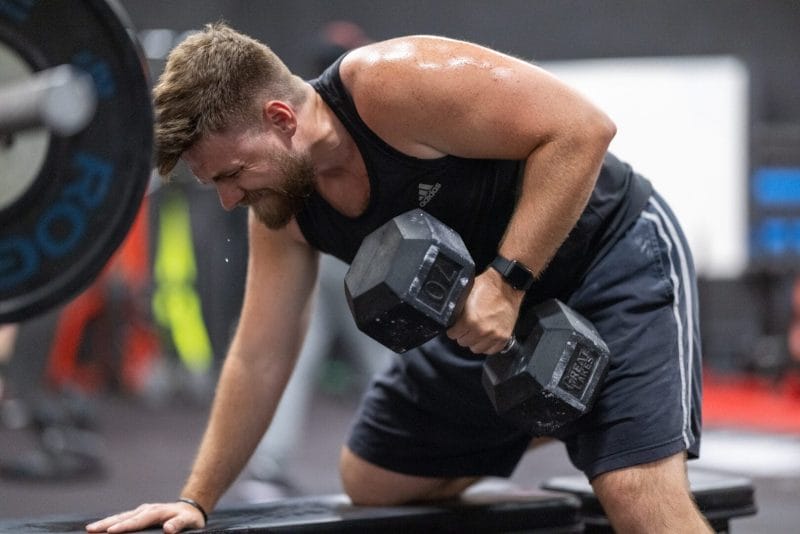Why should someone add muscle to their body?
Besides the obvious “look good naked” benefits, it’s actually great for your health.
Keep in mind that we aren’t talking about huge amounts of muscle. Sometimes people think of oversized bodybuilders when they hear the word “muscle,” but we’re referring to smaller amounts of muscle added to people who want to be generally healthy and active. Believe it or not, it takes seasoned gym goers a generous amount of time to add copious amounts of muscle; any of us afraid of getting “too bulky” haven’t to worry. It’s not very likely to happen.
A lot has been written about the “obesity epidemic,” but you don’t often hear about “sarcopenia”—a gradual loss of muscle mass and strength. While fat tissue stores increase with sedentary behaviors, we also see a decline in lean muscle tissue.
This condition is more common in the elderly, but many people start losing muscle in their 30s. In fact, Webmd.com states that inactive people can lose between three and five percent of their muscle mass in every decade after they turn 30.
This might not seem like a big deal, but if you lose muscle, you’ll lose the ability to perform tasks, and you’ll be more prone to injury. Eventually, you might not be able to live independently. This inability to be independent not only increases our risk of mortality, it also drastically lowers our quality of life.
But there’s great news: Strength training works at any age!
When you’re younger, you can use strength training to build muscle. When you’re in your 30s, you can STILL add muscle if you train properly, and you can definitely slow the inevitable loss of muscle as you age. People in the 70s can add muscle and gain strength, too, even if they won’t do it as quickly as they did when they were younger. While many of us have a “ceiling” of genetic potential, many of us rarely (if ever) come close to it. By keeping our goals relative to our current (and past) lifestyle, we realize how much runway we have to improve.
So what are the benefits of muscle? Here are seven of them:
- Muscle increases your ability to do everyday tasks—If you’re strong, you won’t struggle to pick up the kids, move that box or just stand up. And, related to that, you’ll feel a sense of confidence because you know you’re physically able to do lots of things.
- Muscle prevents injuries—If your muscles and bones are weak, it’s much easier to damage them. Weak, unbalanced muscles leave your joints unprotected. If you have a good amount of muscle, you’ll avoid a host of injuries. Weak things break as Louie Simmons would say.
- Muscle helps preserve a healthy body weight—If you have more muscle, you’ll burn more calories at rest, which makes it harder to gain excess weight. Besides, people with strong muscles are generally active because they like to use them in fun activities, which makes it even harder to add body fat. The “show” makes us want to “go”.
- Muscle improves posture and prevents aches and pains—As you lose muscle, your body can start to “sag,” (a weird visual I know) and that causes all kinds of problems. Think about someone whose rounded shoulders cause a lot of pain. If you build some muscle, you’ll add a ton of “support structure,” and your body will feel great.
- Muscles helps you perform better in sports–If you enjoy playing any sport, muscle will help you get better results (and avoid injuries, too). You’ll be stronger, faster and more powerful. A more physical specimen able to translate skills to their respective sport becomes a deadly athlete.
- Muscle has aesthetic benefits—Some people don’t care about this at all. But others really appreciate the way they look when they carry some muscle. Look good, feel good, do good.
- Muscle building has mental-health benefits—Studies have suggested that strength training can boost self-esteem and help people deal with depression, anxiety and stress. Strength training has no negative side effects, and you can even train with a partner or in a group to make it a super-fun social experience.
Overall, a little muscle goes a long way—and we’re experts when it comes to adding it.
If you’d like to learn how we can help you add muscle so you can do the things you want to do, book a free consultation here!


